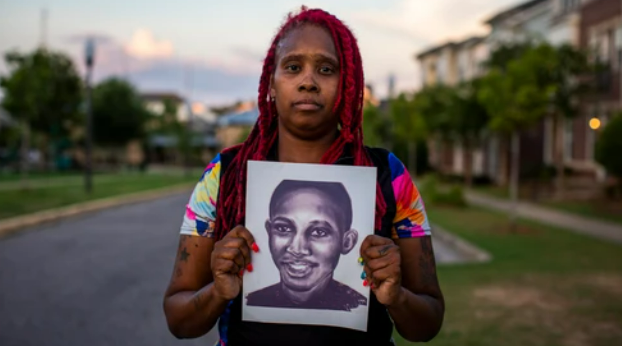LaKeith Smith Resentencing Set for Next Week in Alabama
Smith was 15 when sentenced to 65 years for felony murder he didn't commit.

In February 2015, LaKeith Smith and four other boys broke into a house in Millbrook Alabama, a northern suburb of Montgomery, according to police. A Millbrook police officer’s body camera footage showed him encountering 16-year-old A’Donte Washington emerging from a fence bordering the house. The officer fired four shots, which ended up fatally wounding Washington. Three of them, according to an autopsy, hit the boy in the back of his forearm, back of his shoulder and back of his neck. The footage showed the officer jumping onto the felled Washington, shouting, “Drop it! Drop it!”
A grand jury cleared the officer of wrongdoing, but under Alabama’s felony murder law allowing prosecutors to charge a person considered an accomplice to a crime, prosecutors sought felony murder charges for the other three boys involved in the burglary. Of the other boys also charged with felony murder in connection with A’Donte Washington’s death, three took plea deals saying they were guilty. One of the boys was 14 and officially a youthful offender and spent 14 months behind bars, and the other two were sentenced to serve roughly half the amount of time that Smith eventually received.
Smith was the only one who chose to argue his case in court, and despite no evidence that the teen fired or possessed a gun was presented during the trial, he lost. He was sentenced to 65 years in prison, which has been reduced to 55 years, and has been locked down at St. Clair Correctional Facility, where 28 violent deaths and 90 assaults were reported among 1,200 incarcerees from January through December 2022, making it one of Alabama's most dangerous prisons.
After years of advocacy, a coalition of friends, family, and activists managed to gain enough momentum to get Smith’s case back into the public conversation. Crucial in this was bringing in a new lawyer, Leroy Maxwell, who got the court to accept that Smith's original conviction may have been unjust. Maxwell argues that his case was handled so irresponsibly that it amounted to a violation of his constitutional right to a fair trial. Maxwell also says that Smith’s age was never fairly taken into consideration, as he was tried as an adult.
Two of Smith’s most outspoken advocates are the parents of A’Donte Washington, the boy whose death set the felony murder charge in motion. “I feel like he shouldn’t do another day [in prison] and he needs to come home,” said Vernice Washington, A’Donte’s mother, in an interview with VICE News.
For Smith and his family, everything comes down to March 21. He will stand in the same court as he did years ago, with the same judge who sentenced him to essentially a life of incarceration. But unlike his original conviction, his case will not be argued in front of a jury; the judge will make the final decision.
To read more about LaKeith Smith and his upcoming appeal, read "A Teen Got 55 Years After Cops Killed His Friend. He Might Be Coming Home" at the VICE News website.










